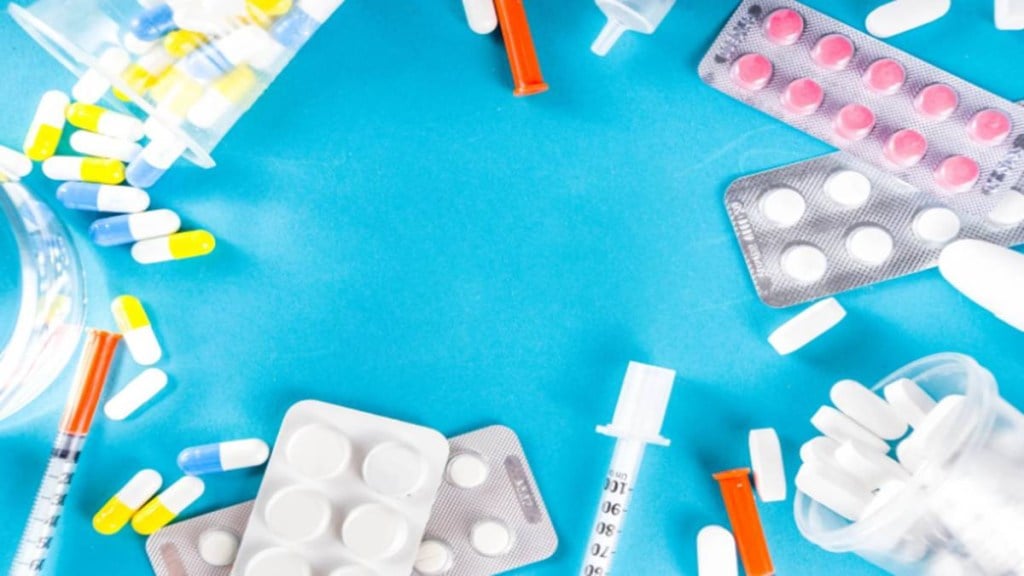Indian pharma stocks fell up to 7% on Friday, in what is seen as a knee jerk reaction to the US president Donald Trump’s statement on Thursday imposing 100% tariff on branded and patented pharmaceutical imports. The tariff will apply to companies lacking operational or under-construction manufacturing facilities in the US, effective October 1.
Industry executives and analysts said India’s exports of medicines to the world’s largest economy – in excess of $10 billion annually at present– may not face any major hindrance due to the latest move by Trump. India’s pharmaceutical exports are predominantly generics, which are excluded from the levy, they noted.
Some of the large companies like Sun Pharma, Dr Reddy’s and Lupin have manufacturing facilities in the US, where they make branded generics, which are sold over the counter. Novel drugs are supplied to the US by firms in Germany, Ireland and Switzerland.
Minimal direct impact
However, there are concerns that fresh tariffs could be levied on generics also. Besides, some companies, especially the smaller ones, may face queries by the US Customs as even generic drugs are sold with labels of manufacturers, which could be construed as branding.
The US tariff may have implications for Indian firms that supply key ingredients to suppliers of branded generics in the US market, including some European firms under contractual assignments.
Trump’s move follows a range of investigations under Section 232 of the US Trade Expansion Act of 1962, which accords the President the power to raise tariffs on grounds of national security.
“The proposed 100% tariff from October 1 on branded and patented pharmaceutical imports is unlikely to have an immediate impact on Indian exports, as the bulk of our contribution lies in simple generics and most large Indian companies already operate US manufacturing or repackaging units and are exploring further acquisitions. Current investigations under the Section 232 appear focused elsewhere and have not taken a direct call on generics,” said Namit Joshi, chairman of Pharmexcil, the export council for the sector. “The social media post by POTUS (President of the United States) refers to patented and branded products supplied to US. It is not applicable to generic medicines,” said Sudarshan Jain, secretary general of Indian Pharmaceutical Alliance (IPA), the industry body that consists of large Indian drug-makers.
In FY25, India exported $10.51 billion worth of pharma to the US, which is 34.5% of its total pharma exports. Top Indian drugmakers exporting to the US include Sun Pharma, Dr. Reddy’s Labs, Zydus Lifesciences, Cipla, Lupin, Biocon and Aurobindo Pharma. “We are not supplying patented or branded drugs to the US. We are mostly exporting in generics and non-patented biosimilars,” said spokesperson of a leading exporter, refuting reports of a direct impact of the US move on the firm.
Market Jitters
The Nifty Pharma index slumped 2.14%, making it the third-worst performing sectoral index on the NSE, on a day when the benchmark Nifty fell 0.95%. Out of the 20 constituents of the Nifty Pharma index, 17 closed in the red. Laurus Labs led the losers, falling 7.15%, followed by Biocon (-4.78%), Zydus Lifesciences (-4.35%), Divi’s Laboratories (-3.76%), and Glenmark Pharma (-2.89%).
The Nifty Pharma index has fallen 8.14% so far in 2025 and 8.55% over the past one year, significantly underperforming the benchmark Nifty, which has gained 4.27% in 2025 but declined 5.82% over the past year.
There are concerns that fresh tariffs could be levied on generics too which make up most of the Indian exports. “As of now, generics medicines and APIs (active pharma ingredients) exported to the US have been exempted from the fresh hikes, but there are expectation that these categories might also witness tariff hikes soon which is why the pharma stocks have reacted negatively,” said a senior research analyst at Deven Choksey Research.
In a note, SAMCO Securities said that the uncertainty around whether these tariffs could extend to complex generics and specialty medicines areas, where Indian pharma leads globally, has spooked investors. “Some large players, including Sun Pharma, Dr. Reddy’s, and Lupin, already have manufacturing facilities in the US, which helps them mitigate risks from regulatory hurdles and trade disputes. This may cushion them if tariffs escalate, but the sector as a whole remains exposed,” the note said.
Experts said that the impact could also be felt by API companies who are supplying raw materials to the drug companies producing branded medicines for the US market.
Meanwhile, analysts said the hike in tariffs on generics drugs would act like a double-edged sword that’s going to hurt both Indian pharma companies and US consumers since India supplies about 40% of the generic medicines used in the US. “While patients in the US may face rising costs, Indian pharma could step up its game by advocating for a global framework where affordability and patient access remain non-negotiable, irrespective of politics or tariffs,” said Parag Bhatia, director at Laborate Pharmaceuticals.
